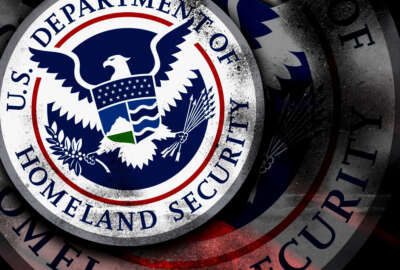
DHS secretary unveils newest tool for fight against terrorism
Department of Homeland Security Secretary Jeh Johnson introduced a new advisory bulletin under the National Terrorism Advisory System.
The United States needs another layer of protection as it enters a new environment of global threats, Department of Homeland Security Secretary Jeh Johnson says, and the way to do that is to keep the public informed.
On Wednesday Johnson unveiled a new advisory bulletin under the National Terrorism Advisory System. Speaking to reporters gathered at the Federal Emergency Management Agency Headquarters in Washington, Johnson called the bulletin a “multi-faceted homeland security response to a new environment.”
“This involves a process of consulting with the FBI definitely, and a number of other agencies; law enforcement and national security,” Johnson said. “My goal is that we have an agile process, so that we can issue one of these on a day’s notice if we believe circumstances have warranted it. I think we need to institutionalize that process in this current environment. That’s what we’re doing today with this new level of bulletin that does not depend on a specific credible threat.”
According to the bulletin, while there is no information about a current specific or credible terrorist threat, “the reality is terrorist-inspired individuals have conducted, or attempted to conduct, attacks in the United States this year.”
“DHS is especially concerned that terrorist-inspired individuals and homegrown violent extremists may be encouraged or inspired to target public events or places,” the bulletin states. “As we saw in the recent attacks in San Bernardino and Paris, terrorists will consider a diverse and wide selection of targets for attacks. In the current environment, DHS is also concerned about threats and violence directed at particular communities and individuals across the country, based on perceived religion, ethnicity or nationality.”
The bulletin outlines federal counterterrorism efforts — heavy police presence and continued FBI investigations — as well as online resources for members of the public.
“It describes general developments or trends regarding threats to terrorism,” Johnson said. “We do this in public speeches, public statements, we do this with law enforcement, joint intelligence bulletins. We do this on a periodic basis, there are news leaks, anonymous sources from national security, law enforcement. We want to put in one place for the public to see what we are seeing concerning the homeland and what we are doing about it and what the public can do about it.”
This is the first change to the advisory system since its creation in 2011. In fact it is the first advisory of any kind issued under the system. The system’s Twitter handle, @NTASAlerts, has 23,500 followers without a single tweet. Its Facebook page is liked by 33,864 people, but its timeline has no posts.
“This system has never been deployed,” Johnson said. “It depends, for the elevated alert, on a credible terrorist alert, something very specific. An imminent alert warns of a credible, specific, impending threat against the United States. This in my judgement does not work in the current threat environment because it depends on a specific credible terrorist threat to something in the homeland. This system has never been deployed. It’s time we changed this system.”
Terrorist-inspired attacks can happen with little or no notice, Johnson said.
“There’s a way to address that, a whole-of-government approach that involves the military, involves law enforcement, involves heightened security, a heightened presence of law enforcement around the country, involves building bridges to communities that are being targeted by terrorist organizations,” Johnson said. “The new environment that we’re in includes not only the potential for terrorism directly, but terrorism-inspired attacks. Many times what we are concerned about in the homeland is copycat-like attacks.”
Sen. Tom Carper (D-Del.), who sits on the Homeland Security and Governmental Affairs Committee, called the new advisory a “small but needed step” to make sure families and communities are safe.
“Like all national security programs, the National Terrorism Advisory System must be revisited and revised as the threats we face evolve,” he said.
“It’s important that we get the public concise and accurate information to the full extent we can,” Johnson said. “Because we believe that an informed public is good for public safety and homeland security.”
Copyright © 2024 Federal News Network. All rights reserved. This website is not intended for users located within the European Economic Area.



